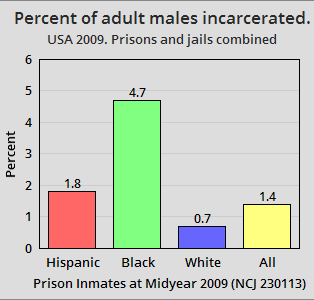Anyone from Hawaii?
Last activity 13 November 2016 by guestposter3251
1046 Views
32 replies
Subscribe to the topic
Post new topic
In the Puerto Rico forum we are talking about the possibility of becoming a state.
Puerto Rico has Spanish at its official language and everything including the goverment, schools, press, legal documents, etc are in Spanish, Only about 1/3 of the population speaks some rudimentary English and Maybe 20% speak English Fluently.
Upon Hawaii becoming a state, was English forced as the primary language?
How hard was the conversion of Hawaii to English?
Has the conversion to a state adversely affected the customs?
Did the Price of real state explode shortly after or was it just a progression that started before becoming a state?
Thanks
I can answer 2 questions. The Hawaiian culture is still very strong. There is an insular mentality, insular in a positive way (I come from an island too with a unique culture and language). I'm sure that the addition of Hawaii as a state brought some changes, but it seems to have been largely accepted and beneficial for the locals.
As for the language, the US do not have an official language and nobody is forced to learn English. Many people live in the US all their life and don't speak it at all. It just doesn't make sense to not have at least some proficiency in English on the continental United States for business and convenience or just to better your life, but it may not matter for Puerto Rico.
I live in Orlando which has a large PR population and many of them don't speak any English. There is enough of a community that they can get the services required from other Spanish speaking people. However it is important to speak English as contracts and other documentation may not be available. For example I work in real estate and all the approved contracts we use are in English and English only. There are translated versions available for reference but the legally binding paperwork is all in English.
I have visited Hawaii and the traditional culture is strong and well respected, however there is a noticeable divide between the two cultures economically and socially.
Yes, my fear is that the population will have a hard time dealing with English after 400+ years of Spanish. It will not be a big deal 50 years or so from now but mean time it would be difficult. as to forced English or not, If all legal papers are in English and goverment is run in English and most jobs require English and most stores have English signs and restaurants menus are in English, it sounds like a hard transition where English is a forced requirement not a nice to have.
Also concerned with federal tax. The island has a high tax system plus sales tax of 11.5%. Island taxes run around 28 %, it would be very hard to lower the taxes to the level most states require which is around 5-7%. The combination of a 20%+ island tax and a 20%+ federal would leave very little in the working class pocket. I do not see how that is going to work out.
I am not sure if it is true, what I been hearing that a lot of people no longer can afford property unless the make 6 figures in Hawaii. People in PR make generally less than 28k a year, most make around 21k, even if salaries were to double (unlikely) it would still be very hard for the average family to afford a place if the home prices raise like in Hawaii.
While it would be nice to become a state, I am not sure we can afford it. Maybe I am wrong, that is why I am looking for input, specially from those that lived tru the transition.
I am not sure that Congress will grant PR statehood even if the people were to vote for it. I do not think is in the cards for D.C., or PR for at least another 10-15 years. Obviously I could be wrong.
Property in Hawaii is very expensive compared to Florida. The cost of living in general was high. I have been to PR twice, the last time this year. I saw a lot of improvements from the 1st time. How ever we were there when there was no power in San Juan. PR is in a lot of debt. What are the advantages to the US to taking on so much debt and making PR a state?
0.1% of Hawaiians speak the native tongue. and both Hawaiian and english are official state languages. Hawai'i has been practical enough to learn english long ago. Commonly immigrants speak the mother tongue and subsequent generations only speak english. Most votes show PR split on statehood so it wont happen till there is a majority for something. Spanish isnt the only obstacle PR will need to overcome. Most hispanic cultures do not fit with US culture, you see that all over Florida but that will change in subsequent generations. Louisiana made english the official language in schools and and in government in the 1950's. French speakers are now in nursing homes. While mother tongues can be useful as translators the only useful language in the US over all is english. PR should have switched to english long ago for purely practical reasons. Hawai'i is very expensive. Clinton screwed PR when he agreed to eliminate the special PR tax credit but PR does have a higher standard of living than other Carib islands.
shelleyfreeman wrote:Property in Hawaii is very expensive compared to Florida. The cost of living in general was high. I have been to PR twice, the last time this year. I saw a lot of improvements from the 1st time. How ever we were there when there was no power in San Juan. PR is in a lot of debt. What are the advantages to the US to taking on so much debt and making PR a state?
I agree that it makes no sense for congress, but the governor elect and his party are set on holding a vote next year to ask for equal treatment by becoming a state. I think is unlikely for many years to come, specially with a 72 billion debt and a 40+ billion hole in the retirement plan for goverment employees.
I am not even sure the goverment has really worked on answering 1/2 the questions I raised, yet they are trying to sell people into voting for statehood. Makes no sense to me.
katzgar wrote:Most hispanic cultures do not fit with US culture, you see that all over Florida but that will change in subsequent generations.
Please explain the above, NY city was one of the original areas where Caribbean people settle at and I have seen no real clash, also Cubans been in Florida for many years and between Puerto Rican's and Cubans in Florida, we are talking about a million and a half or so.
I been in the US for 43 years I have never felt that the two cultures clashed, different but not clashing in my opinion. I am not in anyway implying you are wrong, just saying that I have not seen or experienced any cultural clashes. For example in some countries stoning a cheating wife, performing sexual mutilation, and honor killings would definitely clash if practiced in the US, but Hispanic cultures do not have such practices.
Maybe you see things from a different angle or the fact that you live in Florida have you exposed to things I do not normally see.
Please explain what sort of things in your opinion clash culturally, language yes, but besides that?
Thanks
P.S. If I were to visit Florida, where would I go to see the type of cultural clashes you speak off?
Between legally Immigrated Mexicans, Puerto Rican's, Cubans, and small groups from other Hispanic countries, Spanish may become a very important language in the US as 2nd and 3rd generations of those continue to grow.
I lived in Ft Lauderdale for 2 years and the cultural thing is complicated. Things like fake dentists operating out of rental storage units, fake chinese goods, pill mills, laying in front of cars at intersections to claim injury, through the roof insurance fraud, nepotism and counterfeit money are all cultural differences that are not acceptable in the US generally. I am from minnesota from a german background and such behavour is just not acceptable.
Cubans that arrived way back look at recent cuban arrivals as lazy because recent cubans grew up under castro. My boss in Florida was from Venezuela and he wont go back there now.
katzgar wrote:I lived in Ft Lauderdale for 2 years and the cultural thing is complicated. Things like fake dentists operating out of rental storage units, fake chinese goods, pill mills, laying in front of cars at intersections to claim injury, through the roof insurance fraud, nepotism and counterfeit money are all cultural differences that are not acceptable in the US generally. I am from minnesota from a german background and such behavour is just not acceptable.
Cubans that arrived way back look at recent cuban arrivals as lazy because recent cubans grew up under castro. My boss in Florida was from Venezuela and he wont go back there now.
I would not call that cultural, just people taking advantage of the system and crime. They are not acceptable practices in Puerto Rico either. Fake accidents and fraud like that happens in many states and is not always latinos.
S. Florida is where most of what I describe will be found. You will find good sized communities of haitians, S. Africans, Israelis, Jamaicans and other carib people is S. Florida. There is about 37 million spanish sperakers in the US so not
about 14% of the US population speaks spanish of that 14% 25% speak only english and 36% speak both spanish and english so hispanics in general are getting how useless spanish is in the US. dont see any chance of spanish dominating anytime soon. There are however enclaves in LA and Miami were people are born live and die speaking only spanish but that is rare.
yes fraud is all over but getting a car inspected in Florida before you get car insurance only happens in S. Florida so that gives you an idea how much immigrants (not just hispanics) bring their home culture with them.
"Between legally Immigrated Mexicans, Puerto Rican's, Cubans, and small groups from other Hispanic countries, Spanish may become a very important language in the US as 2nd and 3rd generations of those continue to grow."
second and third generations speak english as their first language and are often embarrassed by the home country culture...they become American.
So what I hear is that they become integrated and clashes are minimized after a while.
All of the Americans here speak English don't they they all came here their ancestors came from somewhere else speaking a different language the Midwest was settled by Germans and swedes and Norwegians and they all came speaking the home language they all speak English now
When immigrants first get here they bring their home culture with them so you have everything from cheating and fraud to female mutilation and on and on over time those people learn how to be American beating wives and children by the father or the husband doesn't cut it here but does cut it in many areas of the world
In the Puerto Rico section of this forum I advice a lot of mainlanders wanting to come live in Puerto Rico. A lot of them are retiring while others are just looking for warm weather and a slower way of life.
I expect that as time goes on and if it ever becomes a state, that Puerto Rico will have many similarities to Hawaii like high cost of living, English as primary language, outrageous real state.
So get your piece of the island early, before prices go thru the roof.
Many states, and specially Florida have been HEAVILY recruiting Doctors and Nurses from Puerto Rico, offering 2 to 4 times the salaries they get in PR, we have lost over 4 thousands doctors in the last 10 years. On average we lose a doctor or two a day.
Programmers and other IT people are also moving over for better money
puerto ricans like to move to south florida because much is familiar but in many ways they are moving to PR again. Population outflow is a huge problem for PR. http://www.pewresearch.org/fact-tank/20 … erto-rico/
Yup, exodus is big time. A lot of people are loosing their homes and moving to the mainland because of unemployment.
I understand when Puerto Rico demanded that the Naval Base leave after they left a lot of people were upset that they did leave because of all the jobs that were lost at the Naval Base so there seems to be some confliction on statehood in Puerto Rico
How do Puerto Rican cigars compared to Cuban cigars
Don't know about cigars.
The issue with the navy use of parts of Vieque island as a target practice was very complicated, they wanted their cake and eat it too. The bombardment ended and the navy base closed so some where happy while others end up unemployed. The Navy has not yet finished cleaning up the unexplored munitions so it is still an open sore.
The adoption of language changed in various countries as other countries invaded and colonised them.
English and Spanish were unknown in North America until invading forces made the locals speak their languages, but history seems to be of little interest to most.
I'm pretty sure English speakers were a very tiny minority in Hawaii until the US invasion forced American English on them.
PR's primary language seems to be Spanish with English being introduced when America attacked, invaded and colonised in 1898.
Others moan on about Spanish being used in many US states, but all the moaners ignore the minor detail the US took over those states from the previous Spanish invaders.
Of course Spanish is widely spoken.
As for the pathetic racist posts about crime being down to given groups; to make that silly idea valid you have to ignore crime committed by all other groups.
Do minority populations commit crime, of course SOME of them do, but so do some members of the majority population.
Now, who would like a nice moan about the Amish refusing to accept English and their refusal to accept America culture?
Fred wrote:The adoption of language changed in various countries as other countries invaded and colonised them.
English and Spanish were unknown in North America until invading forces made the locals speak their languages, but history seems to be of little interest to most.
I'm pretty sure English speakers were a very tiny minority in Hawaii until the US invasion forced American English on them.
PR's primary language seems to be Spanish with English being introduced when America attacked, invaded and colonised in 1898.
Others moan on about Spanish being used in many US states, but all the moaners ignore the minor detail the US took over those states from the previous Spanish invaders.
Of course Spanish is widely spoken.
As for the pathetic racist posts about crime being down to given groups; to make that silly idea valid you have to ignore crime committed by all other groups.
Do minority populations commit crime, of course SOME of them do, but so do some members of the majority population.
Now, who would like a nice moan about the Amish refusing to accept English and their refusal to accept America culture?
you need to get better with facts as Amish speak english in addition to PA dutch. http://amishamerica.com/what-language-d … ish-speak/
"Do minority populations commit crime, of course SOME of them do, but so do some members of the majority population." this is obviously obvious
Fred wrote:As for the pathetic racist posts about crime being down to given groups; to make that silly idea valid you have to ignore crime committed by all other groups.
Do minority populations commit crime, of course SOME of them do, but so do some members of the majority population.
Political correctness will be the end of all of us no matter what race. It is not racist to point to official stats. What is racist is to assume that because someone "looks" like part of an ethnic group that is more often involved in crime that this person is not to be trusted the same than anyone else.
Nonetheless, crime in the US is committed at various pace depending of your ethnic background, but this is because of where you live, not the color of your skin. African Americans are most likely to be confronted with a gang problem because of where most of them live (poor urban areas) than the average white (suburbs). But do not imply that there is not a problem with gangs, unemployment, poverty and drugs.
I agree.
When you oppress a group of people and treat them like crap after either invading their place or kidnapping them as slaves and treating the resulting population really badly, those people are more likely to commit crimes.
We see this with the native population of Hawaii after the invasion and colonisation of their country.
http://www.justicepolicy.org/mobile/news/1907
Forcing a new language on them when you steal their country and treat them badly in all aspects of their lives leads to issues.
Sorry if I'm all PC.
It's not so much that you're being PC it's just that you don't know what you're talking about Hawaiians speak English just fine even though it was mandated on them by the law Louisiana speak English just fine even though it was mandated on them by law the fact is English is necessary in the United States.
If at all possible, I like to hear from Hawaii natives that either have gone thru the process or that can ask their parents what it was like.
Hope some join this conversation and can speak candidly about the good and bad.
Thanks
Here is 2 ways the 2 are different. http://www.pritchettcartoons.com/bet_essay.htmhttp://www.city-data.com/forum/hawaii/2 … aiian.html
google is your friend, doubt you will see many Hawaiians on here.
Retiring baby boomers which is just getting going and cheap commercial air travel (started 1960s ) drive prices in places like PR and Hawai'i.
Hawai'i is undergoing a resurgence of native culture after decades of it being discouraged by the US. There is resentment of whites by some natives and belly bumping whites is a way of showing it. Tourism is big and natives play a big role as you might expect. Because of geopolitical considerations Hawai'i never had the right to independence like PR has. Festivals of all cultures are popular across the US. There are about 30,000 Puerto Ricans in Hawai'i. https://www.hawaiianhistory.org/time-ca … in-hawaii/
I will wait, I rather listen to first hand accounts of assimilation than google for 3rd level opinions of people that were not there.
Neither Google nor WiKi are authorities.
How would you possibly think the people that may show up here are going to be any different than the people that show up on Google are you familiar with the internet
Articles to help you in your expat project in the USA
 Dating in the USA
Dating in the USADating anywhere in the world can be nerve-wracking, but dating in a foreign country can be especially ...
 The American lifestyle
The American lifestyleThe United States is a vast country that is made up of a diverse group of people. Life, landscape, and culture can ...
 Marriage in the United States
Marriage in the United StatesMarriage is a contract that commits two people emotionally, legally, and materially. In the US, both same-sex and ...
 The work culture in New York
The work culture in New YorkThe work culture in New York can significantly vary according to the type of structure, the size of the company, ...
 Using phones in the USA
Using phones in the USAStaying connected with loved ones while in the United States – not to mention all the other reasons ...
 Leisure activities in New York City
Leisure activities in New York CityRegardless of the season or the weather, New York is a city that remains both vibrant and lively all year round. ...
 Childcare in the US
Childcare in the USIf you are moving to the United States and plan to have a full-time job, you will likely need to find someone to ...
 Having a baby in the USA
Having a baby in the USAIf you want to have a baby while in the United States, you'll be pleased to know that not being a citizen or a ...
Find more topics on the USA forum



